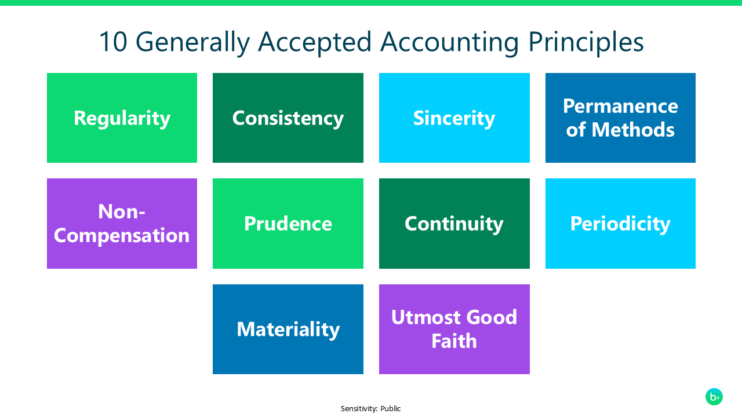Have you ever ever had your board members scratch their collective heads when the event and finance groups report their outcomes? Do you get questions on why the 2 by no means match up?
The quandary that faces each nonprofit administration group is the right way to talk the distinction in GAAP to non-GAAP working outcomes. In lots of respects, it’s the similar problem our for-profit buddies face after they get rid of stock-based compensation from their monetary statements, besides in nonprofit accounting our challenges are on the income aspect of the equation.
With good coaching, clear reporting, and a little bit endurance, you may assist your nonprofit Board members perceive the distinction between the GAAP outcomes your accounting group wants and the non-GAAP outcomes introduced by different areas of the group.
What’s GAAP and Why Is It Essential for Nonprofits?

GAAP stands for typically accepted accounting ideas. These 10 requirements turn into a framework for monitoring and reporting in your monetary information. The GAAP framework helps guarantee transparency and consistency throughout organizations.
Created within the wake of the inventory market crash of 1929 and the ensuing Nice Despair, GAAP was developed and continues to be maintained by the Monetary Accounting Requirements Board (FASB), the SEC, and the American Institute of Licensed Public Accountants (AICPA).
The ideas apply to all accounting professionals however are particularly vital for nonprofits as a result of they emphasize transparency and constructing credibility.
GAAP requires the accrual methodology of accounting, which matches the transaction to the time interval when the exercise happens, not when it’s paid. So, whereas bequests, insurance coverage insurance policies and deliberate items are thrilling for the group, these donations gained’t be mirrored within the GAAP reporting. Kudos to your growth group for getting the payout from an insurance coverage coverage of a 45-year-old. However hopefully that particular person nonetheless has a protracted and fruitful life forward of them, so your group gained’t see these funds for a few years.
These requirements additionally require restricted funds to be tracked individually, guaranteeing donor intent. Organizations can’t use restricted funds except it aligns with what the grant or main donor wished. Grant {dollars} earned particularly for one program can’t be used for a unique program with out the grantor’s consent.
Educating Your Board on GAAP for Nonprofits
My first couple of board conferences as a CFO had been spent taking place the rabbit gap of explaining why my growth companions reported these nice multi-million-dollar quarters, and I’d present the board simply how little money got here into the door and the way a lot of that might truly be spent on the operations of the group.
So, what are you able to do to get rid of these uncomfortable conversations?
Educate, educate, educate. Do you will have board members who’re members of the enterprise group or are they from different disciplines that by no means have the necessity to perceive a monetary assertion? Relying on their consolation discussing monetary statements, craft a workshop that helps them not solely perceive the variations in not-for-profit versus for-profit accounting, but additionally what is taken into account a present by your growth workers versus what hits your monetary statements.
- Does growth depend expectations and bequests at face worth or a reduced charge—do they document them in any respect?
- Do your growth companions depend conditional pledges?
- How do you clarify the low cost charge on multi-year pledges?
These are all areas that influence the variance between what you’re reporting and what the event workplace reviews out.
Create a Easy Reconciliation Schedule
The best answer I discovered (after educating my board on the above points) was to create a easy schedule that reconciled the non-GAAP growth numbers again to what was reported within the monetary statements.
The highest of the schedule listed all GAAP income, together with pledges, money items, non-cash items, and irrevocable trusts. The report would present the subtotal of this income, and record the non-GAAP items under, reminiscent of bequests and revocable trusts. The full of the schedule then matched the numbers reported by the event group. Use clear labeling so your board members can simply see what’s GAAP and what’s non-GAAP.
By making a easy, simple to comply with reconciliation schedule, my growth accomplice and I had been capable of clearly talk the group’s monetary progress to our board.
Adhere to GAAP Requirements with Fund Accounting Software program
If you end up targeted on transparency and stewardship, you want to have the ability to observe your income by fund and create reviews to obviously present your monetary information. Nonprofit accounting software program lets you observe and report in your completely different funds, grants, packages, and initiatives in actual time. It additionally integrates along with your fundraising instruments and automates the reconciliation course of. With nonprofit accounting software program, it can save you time, cut back errors, and talk your monetary outcomes clearly and confidently to your board and stakeholders.
How Growth and Finance Can Get Alongside (Actually!)Does your group want a fund accounting system that makes it simple to stick to GAAP reporting requirements? Try our purchaser’s information that can assist you make an knowledgeable determination about your accounting software program.


